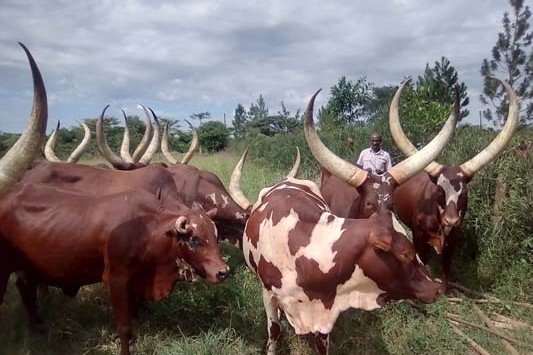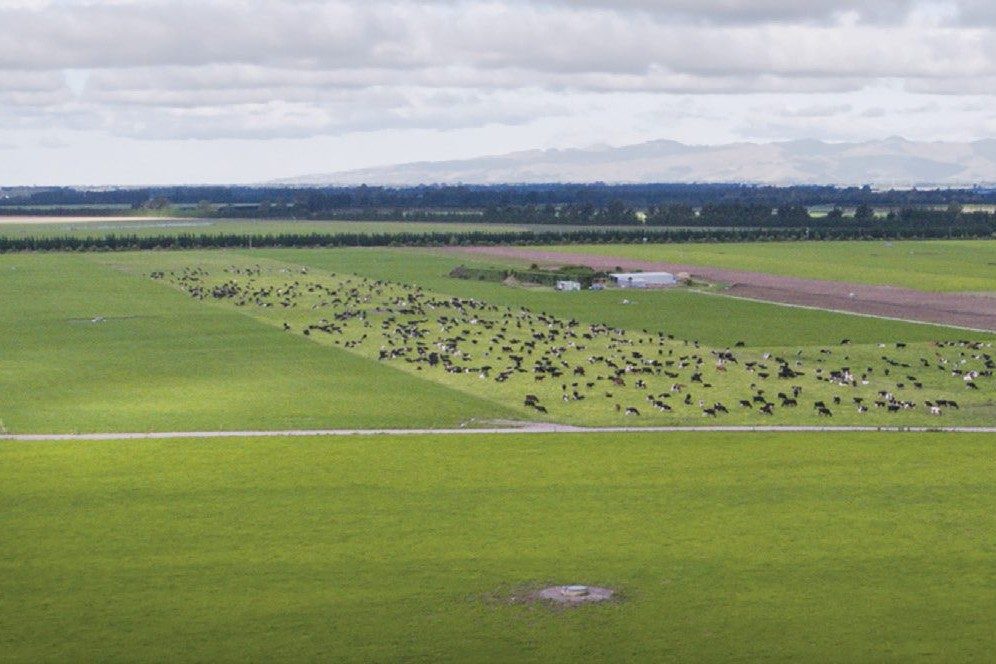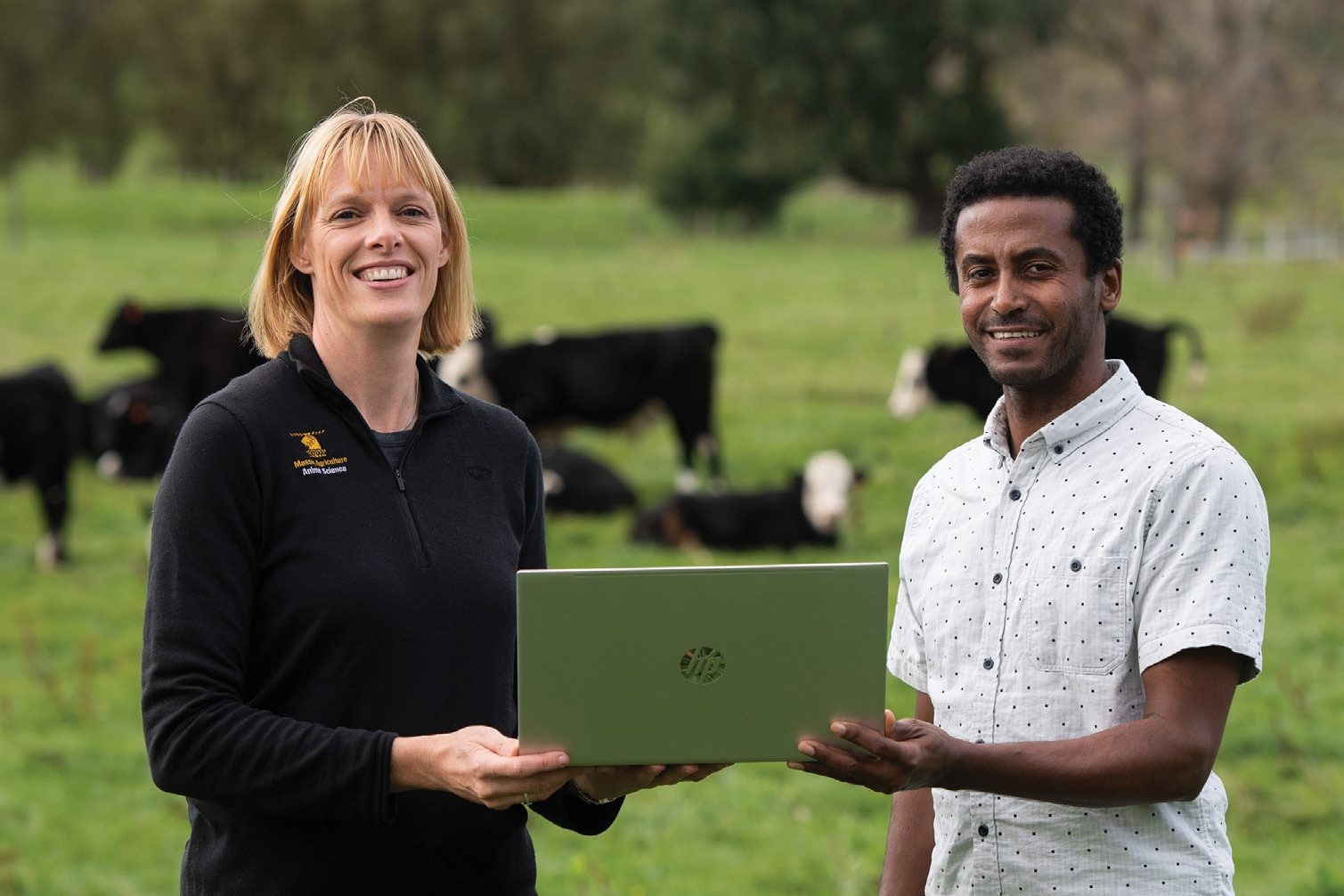Well-structured contracts allow people to progress through the business and put down roots. Anne Lee reports.
Having accurate data on what it costs to run the farm is a must for contract milking agreements, Dairy Holdings Ltd (DHL) chief operating officer Blair Robinson says.
The company runs 75% of its 60 dairy farms under contract milking agreements which offer higher contract milking rates and opportunities to rear stock, along with a bonus if payout surpasses a set threshold and a guaranteed minimum return in the contract but also include a share of a wider range of costs than typical.
“Contract milking provides a pathway for progression – we have a small number of farms with a farm manager and contract milking allows managers and good 2ICs across any of our farms a step up.
“It means we can keep people in our business longer as they develop.
“We have sharemilked farms that range from sharemilkers owning 51% of cows right up to 100%.
“Structuring the contract milking agreement the way we do gives people an opportunity to stay in the business and go all the way from dairy assistant to 2IC or farm manager to contract milker and on to sharemilker without having to leave.”
In some cases that progression can happen all on the same farm.
‘We base our expectations of those costs on a lot of data so we have a high degree of confidence that what we pay them will cover it.’
“People get to put down roots and stay in a community which is great for families – people with kids at school.
“But it’s also good for us because over that time they build their skills and know the farm well and that’s good for farm performance too.”
DHL’s contract milking agreement sees contract milkers pay the usual farm dairy running costs such as electricity, chemical and rubberware along with supplying motorbikes and feedout gear including the tractor and paying for fuel.
They also pay 20% of bought-in supplement cost, 20% of mixed-age cow wintering, 20% of irrigation electricity and up until next season 20% of urea and spreading costs. Blair says the contract rate is set so it covers those costs but it’s not just a matter of giving with one hand and taking with the other.
“It’s aimed at driving behaviours and efficiency.
“We base our expectations of those costs on a lot of data so we have a high degree of confidence that what we pay them will cover it.
“If they can come in under that then that’s a win for them.
“For instance, the budget includes allowance for 60kg drymatter (DM)/cow of bought-in supplement but in a lot of cases the farms will use 0-20kg DM/cow so they benefit because the cost for 60kg has been paid to them in their contract rate.”
It’s a similar situation for wintering costs.
If they manage that well – given they still have to meet cow condition targets – then what’s not used can be utilised by another farm.
“We do a lot of business with ourselves now in terms of being self-contained, so all young stock is reared on our farms and wintering is done on our support blocks along with supplement.
“We’re in control of those costs and our farm system means we’re less exposed to feed costs and even fuel costs.
“Tractors on our farms can end up sitting in the shed for several months on end.
“Where we haven’t had control and we’ve seen variability – like urea – we’ve decided to take it out of the contract, so next season we’ll pay 100% of that cost.”
Blair says they’d made that decision before the steep price rise towards the end of last year but when that hit, it confirmed it was the right thing to do.
“You can have all the shared costs you want in these types of contracts as long as you can be pretty accurate.
“You’ll always get some unders and overs but the last thing you want is to set a contract and have the actuals come in way higher than the budget.
“It is concerning us at the moment that we’re in an environment where some costs are going up rapidly.”
Blair says the business uses its scale and buying power to go out to the market and lock in as many costs as it can for the coming season.
But costs such as labour have gone up quickly.
The company offered contracts to contract milkers towards the end of last year for the 2022/23 season and had reviewed and analysed all of its costs line by line by then.
“On average we’ve put the overall contract rate for next season up by 9c/kg MS and a good portion of that will be wage inflation.”
Labour is included in standard contract milking agreements so its inclusion in their agreements isn’t aimed at driving efficiency.
“I think contract milkers do that themselves anyway and unfortunately this year, because of the labour shortage, right across the country we’ve seen people often operating on half to a full time equivalent down.
“They might have saved money on labour for a time but I think everyone would agree that’s not good for mental health, family life or the performance of the farm.
“Then, when they’ve been able to find someone, they’ve had to lift the wage bracket.”
DHL is refreshing its five-year development plan and one of the key focuses has been options for increasing efficiency onfarm in terms of labour.
“We’re looking at a range of options – upgrading irrigation away from labour-intensive systems, putting in cup removers and automation – we’re revisiting all that.”
Blair says the company is also investing more in upskilling contract milkers and sharemilkers in managing and developing their people.
“We’re doing more in that area to help them – helping them with things like annual reviews and training plans – making sure the people below the
operator level can see the pathways forward and have the skills to take them.
“With the labour shortage across the country there’s a lot of opportunity right now for keen, capable people to advance quickly.”
They’ve also been investing in their operators to help improve their financial literacy and build their understanding of how to grow and manage their own business.
“We help them understand a range of financial aspects of running a business and show them what’s possible with our stock policy – where they are contracted to rear a set number of replacements each year but after that any calves born are theirs.
Extra heifer calves can be reared and leased back to DHL, allowing them to build their own herd.
Blair says initially, when they recruit a contract milker or sharemilker they want to know they are in a financial position to fulfil the role. They ask for a statement of position – current assets and liabilities and sometimes a statement from their bank. “We pay our contract milkers right from the first month so they are getting cashflow straight away but we still need to know they’re in a financial position to meet their business commitments from the outset.”
Blair says their calculations to set their contract rate work on covering the costs plus a management wage and an amount to cover the risk.
“So there’s a reward for the risk they’re taking and on a bigger farm that risk is going to be bigger so the reward is set to match that.
“If people aren’t rewarding their contract milkers for the risk they’re taking on then they’re taking a contract milker on for the wrong reasons.
“If the farm owner won’t share some of the earnings with their contract milker then it’s not going toend well.
“We need capable young people coming up through the industry so it’s important contracts are set up well so they see the opportunities and will put the effort in to grow.”





